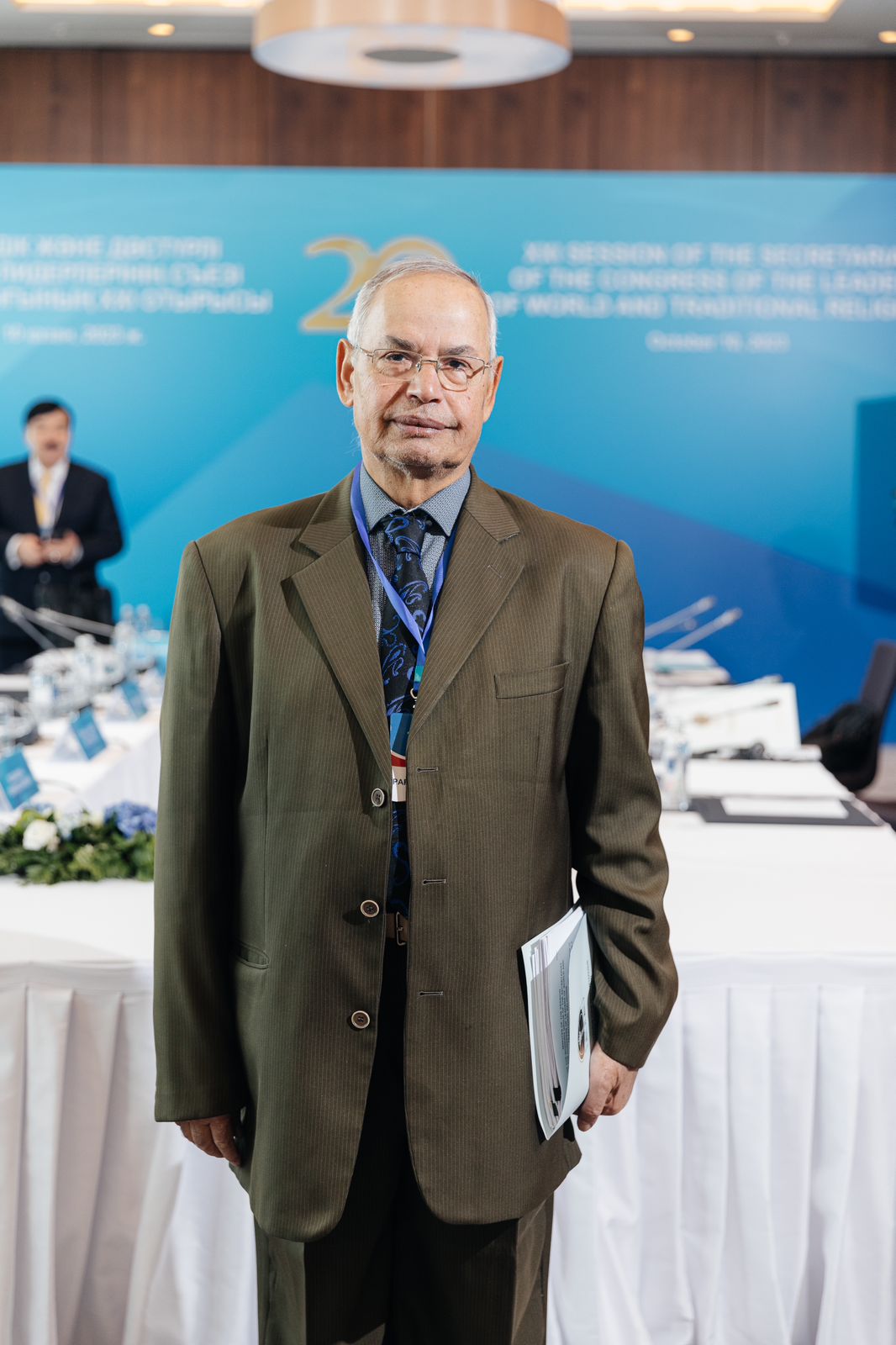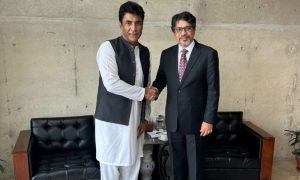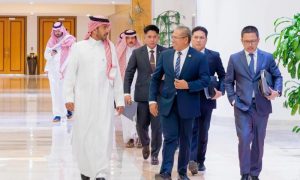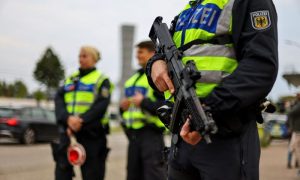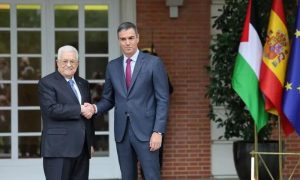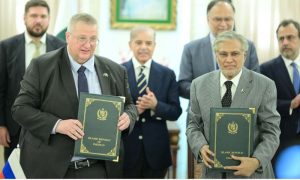In the midst of a technologically advanced yet morally challenged world, the need for a compass rooted in objective principles to guide humanity towards a secure and dignified existence has never been more pressing. Despite advancements in civilization and urbanization, disparities in wealth, progress, and power persist, leading to injustices, conflicts, and crises that threaten the very fabric of society. In this turbulent landscape, the role of religious leaders emerges as a beacon of hope, offering guidance and moral direction to navigate the complexities of the modern world.
At the heart of the matter lies the imperative to harness the principles of religions and the wisdom of religious scholars to uphold human rights, promote peace, and address the root causes of societal discord. Religious teachings, grounded in compassion, justice, and universal values, have the potential to transcend political and ideological divides, fostering a sense of unity and solidarity among diverse communities.
Central to this endeavor is the recognition of the intrinsic worth and dignity of every individual, regardless of their background, beliefs, or social status. Religious leaders, as custodians of moral authority, have a responsibility to advocate for the rights and welfare of all people, particularly the marginalized and vulnerable. By promoting inclusivity and tolerance, they can counteract the forces of prejudice and discrimination that fuel conflict and division.
Moreover, religious leaders play a crucial role in mediating conflicts and promoting reconciliation between conflicting parties. Through dialogue and diplomacy, they can facilitate meaningful engagement and foster mutual understanding, laying the groundwork for lasting peace and reconciliation. By transcending narrow interests and embracing a broader vision of humanity, they can bridge divides and build bridges of trust and cooperation.
In the pursuit of a more just and equitable world, religious leaders must also confront the root causes of social injustice and economic inequality. By advocating for policies that address the structural barriers to development and empower marginalized communities, they can contribute to the creation of a more just and equitable society. From poverty alleviation to environmental conservation, their moral leadership can inspire collective action and foster a culture of solidarity and shared responsibility.
Furthermore, religious leaders have a unique opportunity to challenge the prevailing narrative of power and dominance perpetuated by global superpowers. By advocating for a more equitable distribution of resources and challenging systems of oppression and exploitation, they can promote a vision of global leadership rooted in humility, compassion, and service to others. Through their moral authority and moral courage, they can hold governments and institutions accountable for their actions and inspire transformative change at all levels of society.
The role of religious leaders in bringing humanity together in a secure and unified world cannot be overstated. As moral guides and spiritual mentors, they possess the wisdom, compassion, and moral authority to guide humanity towards a future of peace, justice, and dignity for all. By embracing their responsibility to uphold human rights, promote peace, and address the root causes of social injustice, they can help create a world where all people can live in safety, freedom, and dignity.
Transformative Role of Humanity in Religious Thought: Fostering Peace and Development
At the core of religious understanding lies the profound belief in the inherent dignity and potential of humanity. According to religious teachings, humans are not only the pinnacle of creation but also possess the capacity to embody virtues, foster peace, and drive societal progress. This vision of humanity as agents of positive change forms the basis for establishing a secure and unified world rooted in justice, compassion, and cooperation.
In today’s complex global landscape, marked by disparities in wealth, power, and opportunity, the role of religious leaders in shaping human consciousness and behavior is more crucial than ever. Religious leaders have a unique platform to advocate for the values of compassion, empathy, and mutual respect that underpin harmonious coexistence and sustainable development. Through their teachings and moral guidance, they can inspire individuals and communities to transcend narrow interests and work towards the common good.
One of the key contributions of religious leaders lies in their ability to raise awareness about the importance of cooperation and partnership in addressing global challenges. By emphasizing the shared humanity of all people and the interconnectedness of their destinies, religious leaders can foster a sense of solidarity and collective responsibility towards building a more just and equitable world. This entails promoting dialogue, reconciliation, and mutual understanding among diverse communities, transcending cultural, religious, and ideological divides.
Moreover, religious leaders can play a pivotal role in harnessing the transformative potential of technology and digital innovation for the greater good. In an era of unprecedented scientific and technological advancement, religious leaders can advocate for the ethical and responsible use of digital tools to promote peace, justice, and human flourishing. By leveraging digital platforms to disseminate moral teachings, foster interfaith dialogue, and promote social justice initiatives, religious leaders can amplify their impact and reach a broader audience.
Central to this endeavor is the promotion of a holistic understanding of human development that encompasses spiritual, moral, and material dimensions. Religious leaders can advocate for policies and initiatives that address the root causes of social injustice, poverty, and inequality, while also nurturing the spiritual and ethical development of individuals and communities. This entails promoting education, healthcare, and economic opportunities for all, while also fostering a culture of compassion, empathy, and social responsibility.
At the heart of the transformative role of humanity in religious thought lies a commitment to upholding the dignity and rights of every individual, regardless of their background or beliefs. Religious leaders can serve as moral advocates for the marginalized and vulnerable, speaking out against injustice, oppression, and violence in all its forms. By championing human rights, religious leaders can empower individuals to claim their rightful place in society and contribute to the common good.
The orientation towards establishing an effective role for humanity in religious thought is essential for fostering peace, development, and unity in today’s world. Religious leaders have a unique responsibility to promote a vision of humanity that is grounded in compassion, justice, and solidarity. By harnessing the transformative power of spirituality, moral guidance, and digital innovation, religious leaders can inspire individuals and communities to work towards a future where all people can live in dignity, freedom, and harmony.
Fostering Collective and International Leadership for World Peace: A Religious Perspective
In the pursuit of world peace, it is imperative to embrace the concept of collective and international leadership founded on principles of peaceful coexistence, justice, and equity. This entails empowering countries from Asia, Africa, and Latin America with meaningful representation in key global institutions such as the United Nations Security Council. By expanding membership and ensuring fair representation, these nations can actively participate in shaping international decisions and policies, including those related to human rights.
True peace, as envisioned by many religious traditions, extends beyond the absence of armed conflict to encompass a deep sense of inner tranquility and harmony in daily life. Drawing from the teachings of Islam and other faiths, peace is understood as a comprehensive concept that transcends differences of creed, color, gender, and social status. It is incumbent upon religious leaders to advocate for peace at both individual and international levels, employing peaceful means such as negotiation, mediation, and arbitration to resolve conflicts and prevent the outbreak of war.
At its core, achieving peace requires fostering a sense of inner peace within individuals, which serves as a foundation for ethical behavior and righteous action. By prioritizing piety over immorality and promoting virtuous conduct, individuals contribute to the creation of a peaceful society based on principles of justice, moderation, and compassion. This holistic approach to peace encompasses not only personal ethics but also extends to social, economic, and political dimensions, guiding individuals and nations towards harmonious coexistence.
Central to the message of Islam and other heavenly religions is the principle of ensuring the safety and security of all people, irrespective of their background or beliefs. This concept of dealing emphasizes the intrinsic value of humanity and underscores the importance of fostering trust, respect, and mutual understanding among diverse communities. By upholding the principles of peace and tolerance, individuals contribute to the creation of a global community characterized by harmony and cooperation.
In the contemporary era, characterized by the dominance of major powers and the threat of nuclear terror, the pursuit of peace takes on added urgency. It is incumbent upon religious leaders and communities to advocate for policies and initiatives that promote disarmament, non-proliferation, and peaceful coexistence among nations. By fostering a culture of dialogue, reconciliation, and cooperation, religious leaders can contribute to the creation of a more just, equitable, and peaceful world for all.
The pursuit of world peace requires a concerted effort to foster collective and international leadership rooted in principles of justice, compassion, and equity. Religious leaders have a vital role to play in promoting peace at both individual and international levels, drawing upon the teachings of their respective faith traditions to inspire ethical conduct and righteous action. By working together to address global challenges and promote peaceful coexistence, religious communities can contribute to the realization of a more peaceful and harmonious world for future generations.
Advancing Comprehensive Security: A Collaborative Endeavor of Religious and Political Leaders
In the pursuit of global peace and security, it is imperative to establish a framework that ensures security and self-security for every individual at the local, regional, and international levels. True security transcends mere theoretical concepts or paper-based assurances; it encompasses psychological, moral, material, economic, social, and political dimensions. Complete security entails inner tranquility, safety, stability, and peaceful coexistence, addressing the fundamental needs of individuals while safeguarding them from aggression and conflict.
Religious leaders play a pivotal role in advocating for and promoting comprehensive security. Rooted in the teachings of various faith traditions, the concept of security extends beyond material well-being to encompass spiritual and psychological peace. Religious leaders have the responsibility to raise awareness about the importance of comprehensive security and to actively engage with decision-makers and authorities to ensure its implementation. Through seminars, workshops, conferences, and international organizations, religious leaders can collaborate with political leaders to develop strategies for achieving comprehensive security.
Islamic principles underscore the importance of security in its broadest sense, encompassing both material and spiritual dimensions. Under the leadership of Prophet Muhammad, peace be upon him, Islamic governance prioritized human dignity and universal humanity, establishing a system based on Sharia law that upheld justice, peace, and security for all. However, in the contemporary global system, the ideal of comprehensive security has often been undermined by the vested interests of powerful nations.
The United Nations and other international bodies have articulated the importance of global peace and security, yet practical implementation has often fallen short due to geopolitical interests and power dynamics. Religious leaders can bridge this gap by advocating for genuine cooperation between religious and political leadership, emphasizing the universal values of peace, justice, and human dignity enshrined in religious texts.
The Conference of Religious Leaders should take proactive steps to advance comprehensive security, developing a concrete work program with clear objectives and timelines. By collaborating with political leaders and decision-makers, religious leaders can ensure that the principles of justice and equity guide international relations, particularly between the Global North and Global South.
Achieving comprehensive security requires a concerted effort to address the root causes of conflict and insecurity, including poverty, inequality, and injustice. By prioritizing the well-being of all individuals and communities, regardless of their geographical location or socio-economic status, religious and political leaders can create a more peaceful and stable world for future generations.
The pursuit of comprehensive security is a shared endeavor that requires the collective efforts of religious and political leaders. By upholding the principles of justice, peace, and human dignity, religious leaders can inspire positive change and foster greater cooperation among nations. Through meaningful collaboration and dialogue, we can build a safer, more secure world for all.
The development and implementation of the concept of religious leaders’ contributions have profound implications for fostering interreligious relations, promoting human development, and safeguarding international peace and security. By embracing a comprehensive approach that addresses the holistic needs of individuals and societies, religious leaders can play a pivotal role in nurturing a culture of peace, understanding, and cooperation.
At the heart of this endeavor lies the recognition of the inherent dignity and rights of every individual, irrespective of their background or beliefs. By championing the full spectrum of human rights and freedoms, religious leaders contribute to the creation of an inclusive and equitable society where all members can flourish and thrive. This entails not only addressing material needs but also nurturing spiritual and moral growth, fostering a sense of belonging and interconnectedness among diverse communities.
Central to the concept of interreligious relations is the promotion of mutual respect, understanding, and dialogue. By fostering meaningful and constructive exchanges between different faith traditions, religious leaders can bridge divides, dispel stereotypes, and cultivate a culture of tolerance and acceptance. Through open and honest dialogue, individuals can gain insights into one another’s perspectives, fostering empathy and compassion while addressing misunderstandings and misconceptions.
Moreover, religious leaders have a vital role to play in promoting moderation and countering extremism and terrorism. By advocating for a balanced and centrist approach to religious interpretation and practice, they can mitigate the influence of radical ideologies and promote a message of peace, tolerance, and coexistence. This involves challenging narratives of hate and division while promoting values of forgiveness, reconciliation, and reconciliation.
In the realm of international relations, religious leaders can contribute to the maintenance of peace and security by advocating for diplomacy, conflict resolution, and the peaceful resolution of disputes. By emphasizing the shared values and principles that underpin all faith traditions, they can encourage political leaders to prioritize dialogue and negotiation over conflict and confrontation. This requires a commitment to upholding justice, fairness, and respect for human rights at all levels of governance.
The development of the concept of religious leaders’ contributions holds immense potential for fostering interreligious harmony, promoting human development, and safeguarding international peace and security. By embracing a comprehensive approach that addresses the multifaceted needs of individuals and societies, religious leaders can serve as catalysts for positive change and progress. Through dialogue, understanding, and cooperation, they can help build a world where all people can live in dignity, peace, and prosperity.









